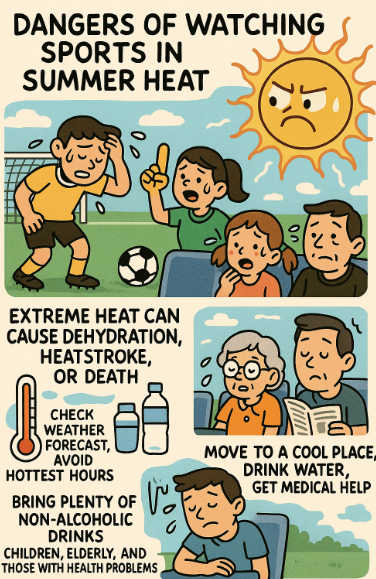Vocabulary
dehydration: A condition that happens when your body loses more water than it takes in. 脱水症
heatstroke: A serious illness caused by the body overheating, often due to long exposure to high temperatures.熱中症
precaution: An action taken in advance to prevent danger or harm, 予防策
diuretic: A substance that makes the body produce more urine, which can lead to water loss. 利尿剤
vulnerable: Explanation: Easily harmed or hurt, especially in certain conditions.傷つきやすい
**************************************
Watching sports in person is exciting, but summer heat can be dangerous. Extreme heat can cause dehydration, heatstroke, or even death. Both players and fans are at risk. Cases in Korea, England, and Japan show that people of all ages can be affected, even in the shade or on cloudy days. Most illnesses happen in July and August, especially between noon and 3 p.m. To stay safe, check the weather forecast, avoid the hottest hours, and bring plenty of non-alcoholic drinks. Alcohol increases dehydration risk. Children, the elderly, and people with health problems should take extra care or stay home during heat alerts. Organizers can help by preparing safety manuals, training staff, and working with emergency services. If you notice dizziness, nausea, or confusion, move to a cool place, drink water, cool your body, and get medical help immediately.
**************************************
